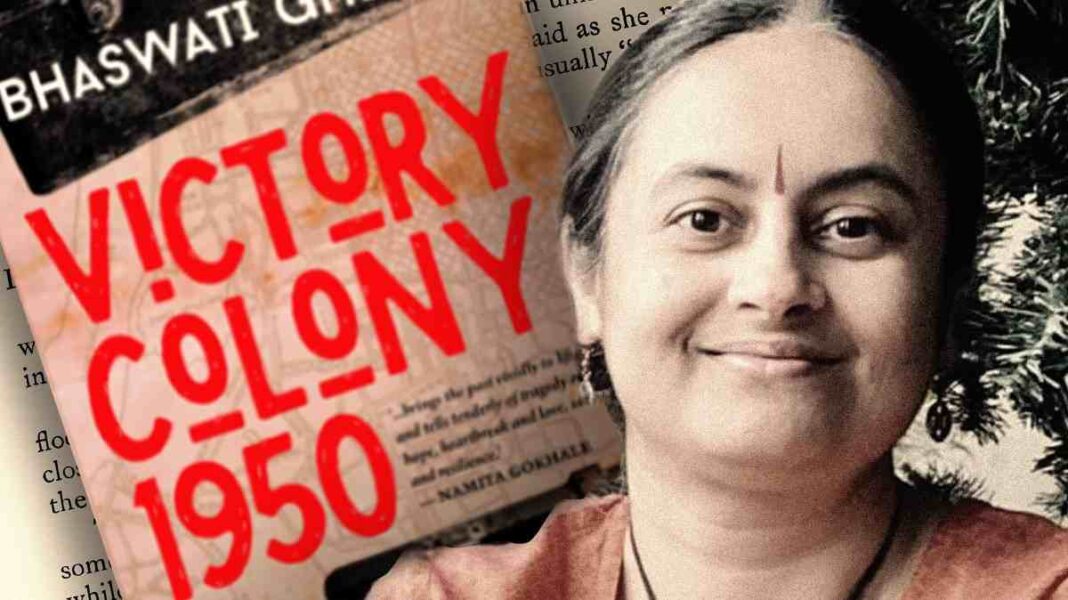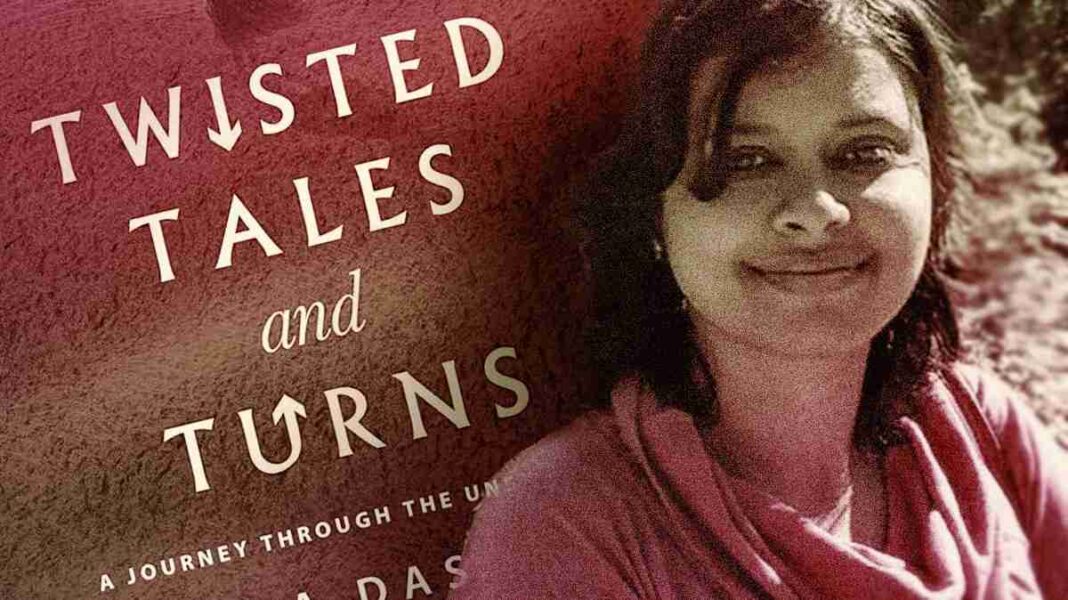Victory Colony 1950, the novel that marks the debut of Bhaswati Ghosh, is a poignantly narrated tale of the aftermath of the Bengali partition. It depicts an exodus from East Pakistan (present-day Bangladesh) to independent India. It is etched in the history of the subcontinent as a gory event of irreparable losses that sought a permanent redefinition of home for many. Victory Colony 1950 serves as an addition to the genre of partition literature from the Indian subcontinent.
Victory Colony 1950 is firmly rooted in this magnanimous and heartbreaking socio-political event to bring forth the long-lasting impact of the increasing refugee crisis of that time. This is done through the plot that revolves around the characters of Manas Dutta and Amala. Manas Dutta happens to be a volunteer at the refugee camp in Kolkata, where Amala ends up after reaching Kolkata’s Sealdah station, leaving behind her life in East Pakistan. She hails from East Bengal’s Madhabpasa region and has traveled across the border with her brother Kartik. The siblings had fled Madhabpasa, fearing the consequences of ethnic cleansing in their place of origin, which happens to be one of the many consequences of the partition and is based on grounds of an aggravated sense of ethnic dissimilarity. In the wake of the partition of Bengal, the siblings do not find the courage to decide their fate but are forced to make the choice to run for their lives. Things take a turn for the worse when Amala gets separated from her brother Kartik at the train station. Her panic-stricken condition calls for the disgust of the onlookers while she becomes the brunt of their anger at creating a ruckus and running helter-skelter.
Uninoculated, this is the rattled, confused, and disordered mental state in which Manas Dutta and his team of volunteers find Amala. She is lost, scared, and disheveled from having witnessed the murder of her parents before her brother goes missing. Her pitiful state is representative of the simple, innocent commoners who end up being the collateral damage in a story rife with the chaos of social turmoil during the onslaught of political apathy. This presents a universality to her pain that resonates with the pain of refugees, exiles, and those displaced from their lands of origin. What makes things worse for characters like Amala is that they do not have the option of ever being able to restore the life they have left behind. This reduces them to a nomadic existence where coming to terms with the reality of the situation is difficult to accept. She is overwhelmed, exhausted, and confused by the consequences of her displacement.
Call it her innate sensibility or the gradual flow of things, she fathoms the goodness of Manas and is receptive to his humanitarian efforts, which kindles the fire of mutual passion between the two. This happens to be a turning point in the plot, more akin to a story within the main story. It also provides an episode of subtle relief, or a silver lining, for the character of Amala and also serves to highlight a lighter side of the plot for the readers. However, any sense of relief or celebration of joy is short-lived for both Amala and Manas. While love blossoms between them in the midst of a hopeless situation, the two get married despite their differences in caste. Manas happens to be from the upper caste, and his marriage is a matter of annoyance that is opposed by his family.
Characterization is well constructed in Victory Colony 1950, as each character serves to depict a certain aspect of the story of Bengali partition. The character of Amala is central to the novel. She is young, tender, and simple. She becomes a witness to the massive bloodshed all around her. She feels bloated by it as a witness to the personal loss of her family members and the collective loss of a place she identified as her homeland, like other East Bengali refugees. She has nothing more to lose, perhaps other than her sanity, which is also waning considering the pangs of loneliness and despair that she finds herself in. Although physically unharmed, she is mentally distraught, and understandably so. Unlike her brother Kartik, who is depicted as a foil character to Amala and has a limited role in the plot, Amala has many sides to her personality as a refugee girl, a beloved of a refugee camp worker, a wife, and a witness to a major turning point in South Asian history.
The character of Manas also finds ample space for development, though he is more of a man of action and less of a man of words. He is a provider and is shown to be a caring, open-minded individual who is an avid reader. In fact, he is depicted as reading Dostoevsky’s Crime and Punishment, which symbolically explains the atrocities that he sees while working at the refugee camp. He is level-headed, realistic, and goes about things with a sense of free thinking that allows him to look beyond social mores or familial norms to marry the girl that he loves. He is observant and feels deeply for the poor conditions of the refugees. He feels guilty to some extent for being alive to witness such a deplorable humanitarian crisis and tries his best to provide as much relief and rehabilitation as is feasible within his individual means. Other than Amala and Manas, Victory Colony 1950 is fraught with many minor characters who have specific roles to play or dialogues to deliver. They add to the backdrop of an overcrowded environment with an atmosphere of poor hygiene, a lack of proper food, and other basic amenities at this makeshift camp site.
The writing style is easy to follow and has a third-person narrative point of view. Ghosh describes with a poignant sensitivity that gives depth to the plot and adds to the element of relatability of the struggle of the powerless common man in the face of another man’s heedless fight for power and dominion. The focus of the author does not waver from the anthropocentric narrative point of view. This is noted in the frequent dialogues exchanged between characters, both major and minor. The dialogues are well written and take the story forward, though the pace of the narrative style is moderately slow. Ghosh does not exaggerate or underplay any aspect of the plot or create scenes to evoke horror. This creates a sense of balance in the descriptions, some of which are vivid. There is frequent use of colloquial Bangla words, phrases, and whole sentences, which is an interesting additional feature of the novel that builds the atmosphere of the plot. However, an index of terms used or an appendix could have been added to the book to ease things for readers who do not follow Bengali. Victory Colony 1950 is a heart-touching and heart-wrenching read at the same time. At over 280 pages, the book is lengthy but will be of interest to those who enjoy partition literature or historical fiction.


